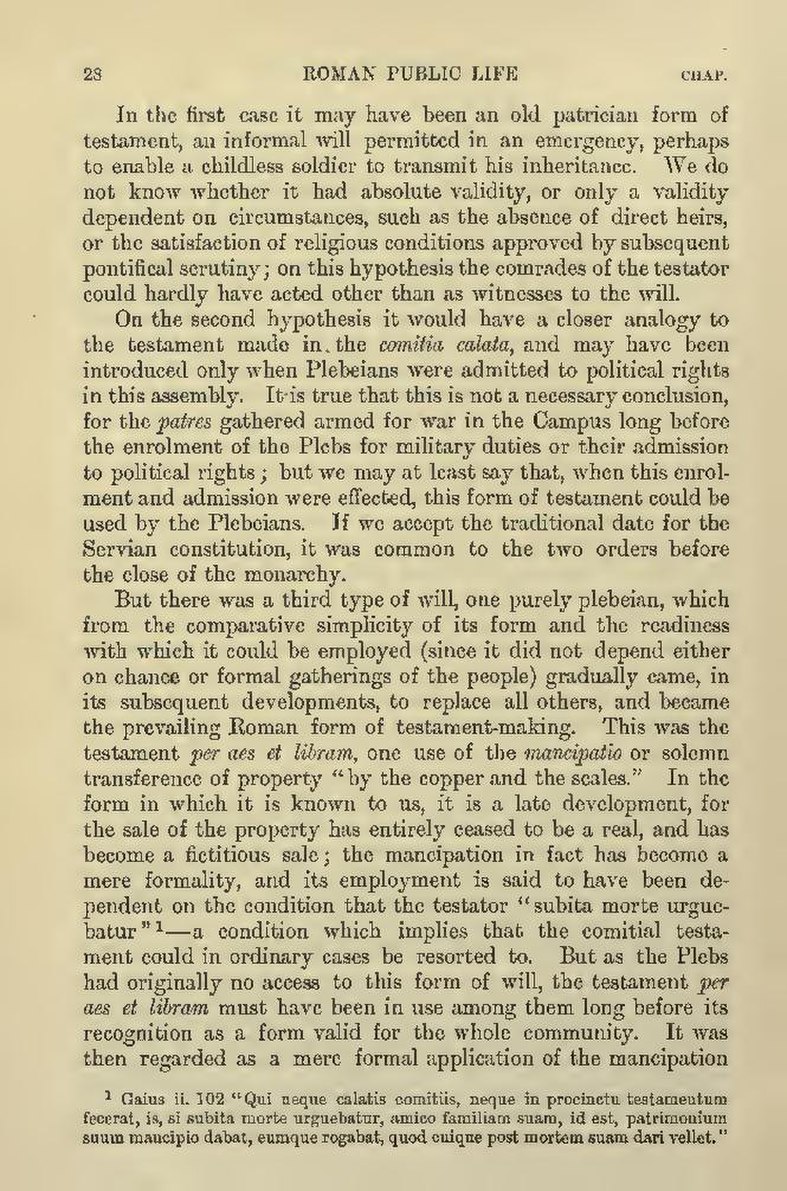In the first case it may have been an old patrician form of testament, an informal will permitted in an emergency, perhaps to enable a childless soldier to transmit his inheritance. We do not know whether it had absolute validity, or only a validity dependent on circumstances, such as the absence of direct heirs, or the satisfaction of religious conditions approved by subsequent pontifical scrutiny; on this hypothesis the comrades of the testator could hardly have acted other than as witnesses to the will.
On the second hypothesis it would have a closer analogy to the testament made in the comitia calata, and may have been introduced only when Plebeians were admitted to political rights in this assembly. It is true that this is not a necessary conclusion, for the patres gathered armed for war in the Campus long before the enrolment of the Plebs for military duties or their admission to political rights; but we may at least say that, when this enrolment and admission were effected, this form of testament could be used by the Plebeians. If we accept the traditional date for the Servian constitution, it was common to the two orders before the close of the monarchy.
But there was a third type of will, one purely plebeian, which from the comparative simplicity of its form and the readiness with which it could be employed (since it did not depend either on chance or formal gatherings of the people) gradually came, in its subsequent developments, to replace all others, and became the prevailing Roman form of testament-making. This was the testament per aes et libram, one use of the mancipatio or solemn transference of property "by the copper and the scales." In the form in which it is known to us, it is a late development, for the sale of the property has entirely ceased to be a real, and has become a fictitious sale; the mancipation in fact has become a mere formality, and its employment is said to have been dependent on the condition that the testator "subita morte urguebatur"[1]—a condition which implies that the comitial testament could in ordinary cases be resorted to. But as the Plebs had originally no access to this form of will, the testament per aes et libram must have been in use among them long before its recognition as a form valid for the whole community. It was then regarded as a mere formal application of the mancipation
- ↑ Gaius ii. 102 "Qui neque calatis comitiis, neque in procinctu testamentum fecerat, is, si subita morte urguebatur, amico familiam suam, id est, patrimonium suum mancipio dabat, eumque rogabat, quod cuique post mortem suam dari vellet."
